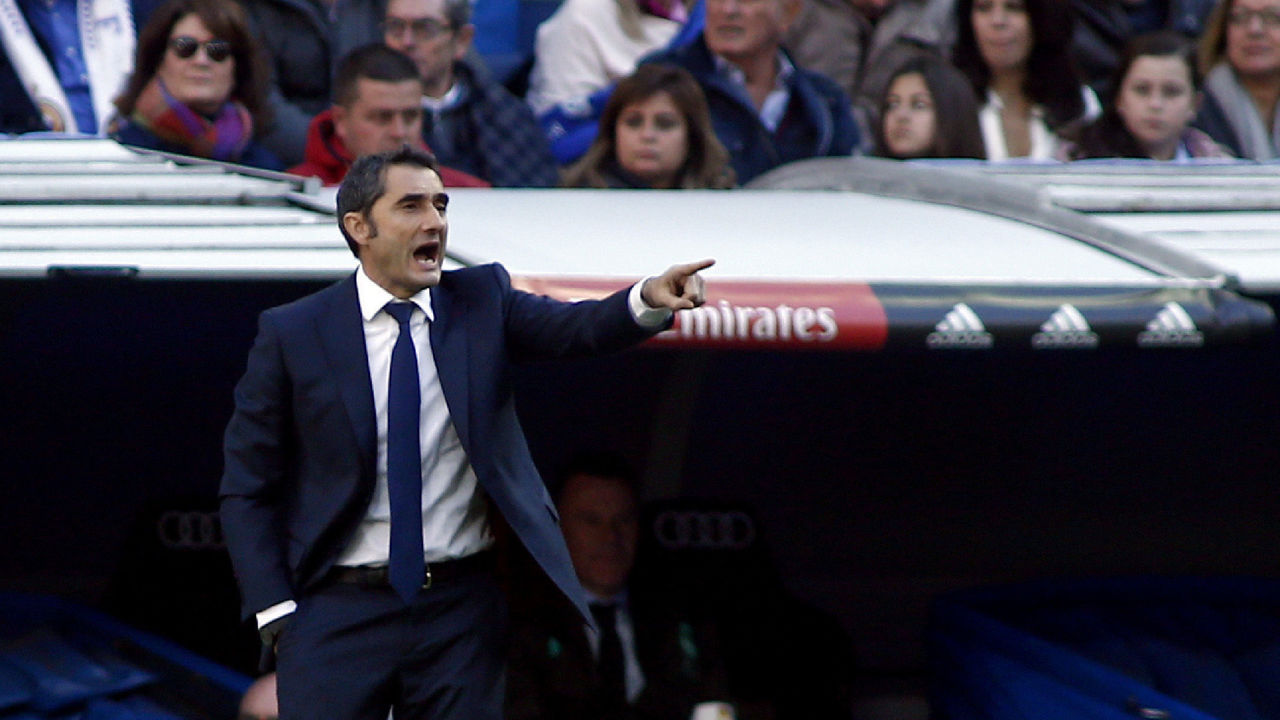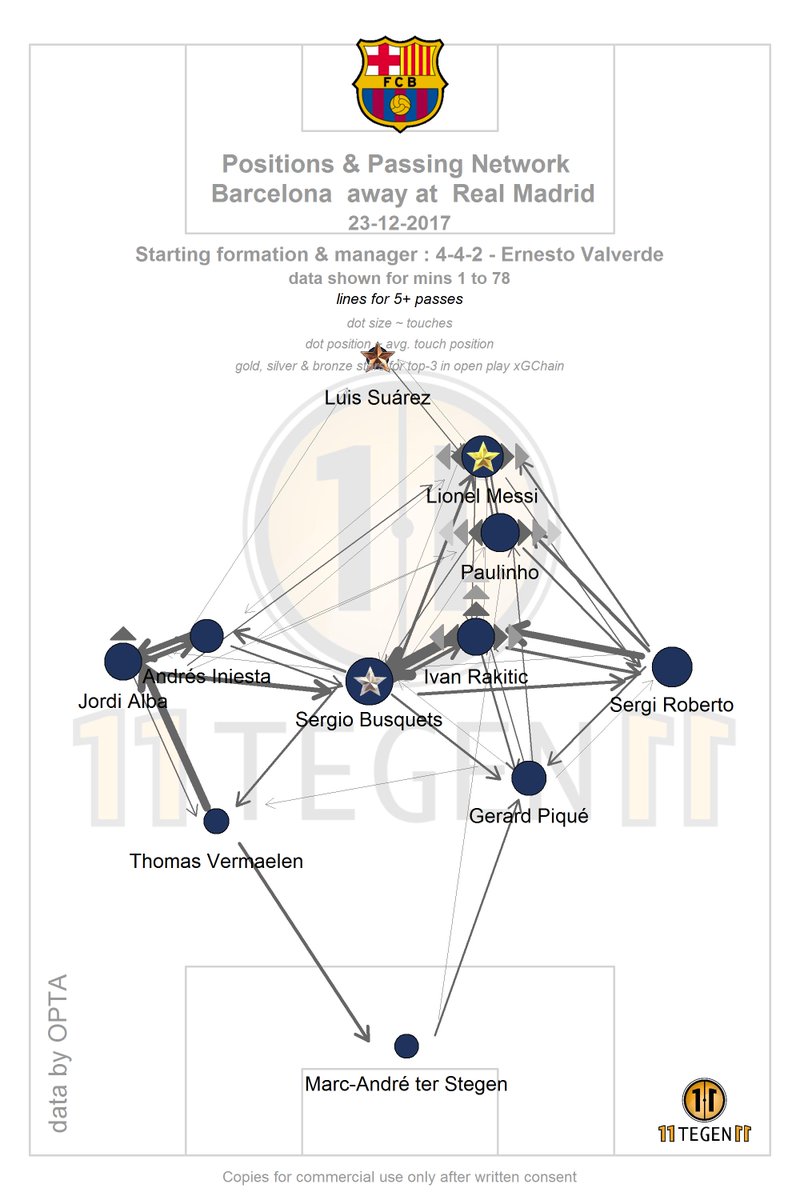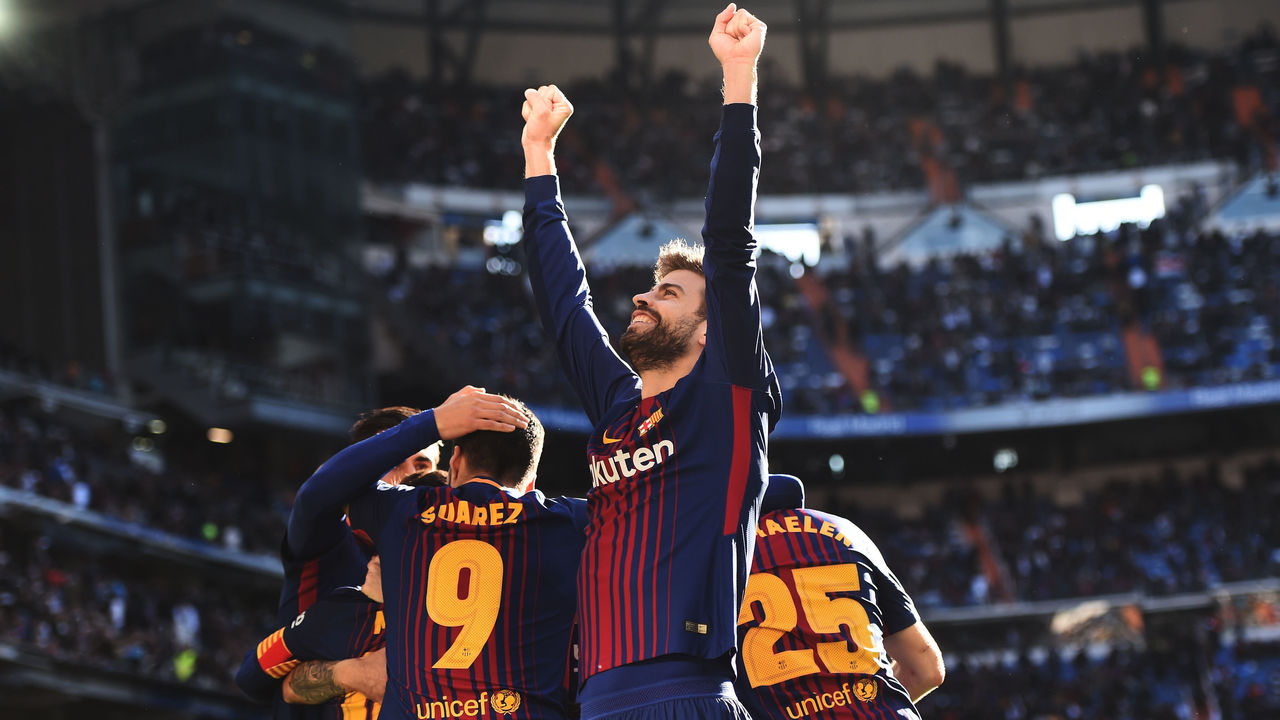Brave new world: Barcelona's title run defined by untraditional style of play
The outlook was so bleak back in August. Barcelona had just lost Neymar to football's next great power, and his replacement, Ousmane Dembele, suffered a serious hamstring injury. Accusations of tax evasion still hung around, and Paulinho couldn't even perform the necessary kickie-uppies at his ill-attended unveiling.
Four months later, Barcelona couldn't look more different. Ernesto Valverde laid down a strong foundation as soon as he arrived, asking for more intensity and defensive awareness from his players. He abandoned the club's Dutch-inspired 4-3-3 formation for a basic 4-4-2 and gave Lionel Messi the freedom to roam the pitch.

It hasn't been so much tiki-taka as ticking all the boxes. It's been about limiting mistakes at the back and being more efficient with the ball. Barcelona hasn't exactly abandoned its attacking principles - it still averages one of the highest percentages of possession in Europe - but it has taken a more substantial approach to winning.
Barcelona showed that resolve in Saturday's El Clasico, holding Real Madrid at bay before exploding for three second-half goals. It was a performance predicated on limiting Los Blancos' goal-scoring opportunities and exploiting space down the middle.
Related: Barcelona leaves 10-man Madrid in the dust in decisive El Clasico
Up against Madrid's high press, Barcelona struggled to control the ball for long periods of time. It was a rare sight from a team synonymous with possession football. But it didn't matter. Valverde set up his players to hit on the counter, soak up pressure, and take every chance that fell their way.
With the centre-backs split wide and Sergio Busquets dropping in between them, Barcelona's defensive shape was solid. That extra security also encouraged the full-backs to take up higher positions on the pitch and cancel out Madrid's crossing game.

(Courtesy: @11tegen11)
It's no coincidence that Barcelona has conceded just seven goals through 17 matchdays - the fewest of any team in the top five European leagues. Valverde has established a strong backline everywhere he's gone. Even at a club like Barcelona, defending as a unit has become a priority.
Whereas the Blaugrana in the past would've taken their time building up play, Valverde wants his players to strike quickly. Paulinho has proved crucial in that sense, offering an outlet as his side's hustling box-to-box midfielder.
"His teams have been able to combine, but also break lines quickly, be more direct," Pako Ayestaran, former assistant to Rafa Benitez, wrote in The Independent last summer. "They don't keep the ball too long, or always move the team with the lines close together. It's quite aggressive. They are strong-minded, and try to break forward quickly."

When Valverde inherited Marcelo Bielsa's Athletic Club in 2016, he helped restore balance to the Basques. In his first season in charge, Athletic conceded a respectable 39 goals compared to the more worrying 65 it allowed in the previous campaign.
A similar malaise had infected Barcelona before Valverde arrived. Gerard Pique's days as a top defender had appeared numbered before this season, but beside Samuel Umtiti, he's more sure of himself. Umtiti has covered for Pique whenever he pushes forward, and Thomas Vermaelen has provided relief since the Frenchman went down with an injury.
Although Barcelona's performance against Madrid won't be remembered as one of the greatest efforts in the history of El Clasico, it was valuable: Valverde's men have now gone the past 25 matches unbeaten. By sacrificing a bit of its tradition, Barcelona emerged from a stormy summer looking like a team again.
(Photos courtesy: Getty Images)
HEADLINES
- Kerr: Timeout blowup with Draymond 'not my finest hour'
- Harbaugh: Relationship with Lamar 'A-plus' amid reported tension
- Kittle uncertain to play vs. Bears after missing Wednesday's practice
- Watt returns to practice 2 weeks after lung surgery
- Former NBA 2nd-round pick Nnaji joins Baylor with immediate eligibility